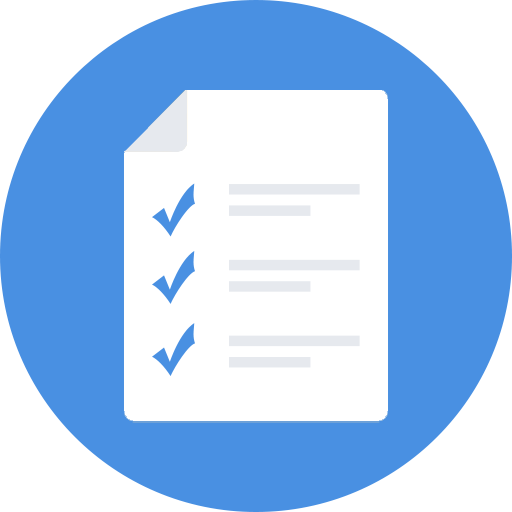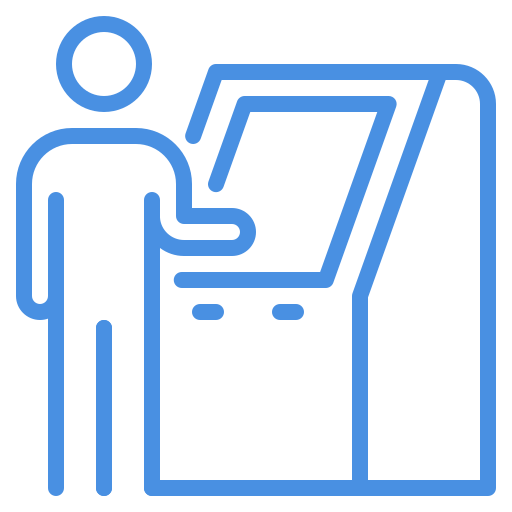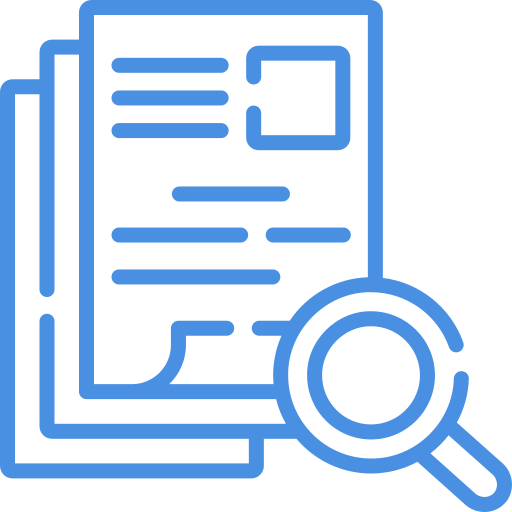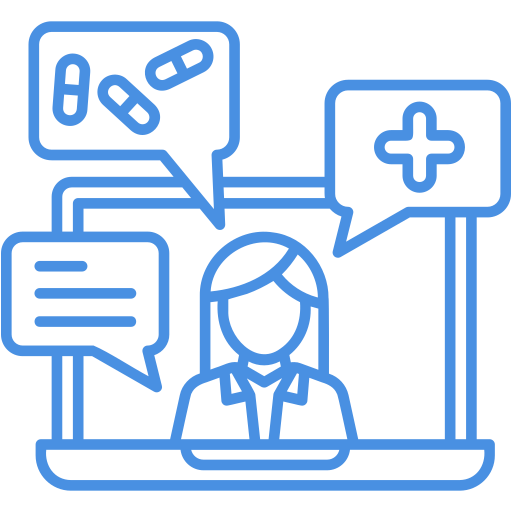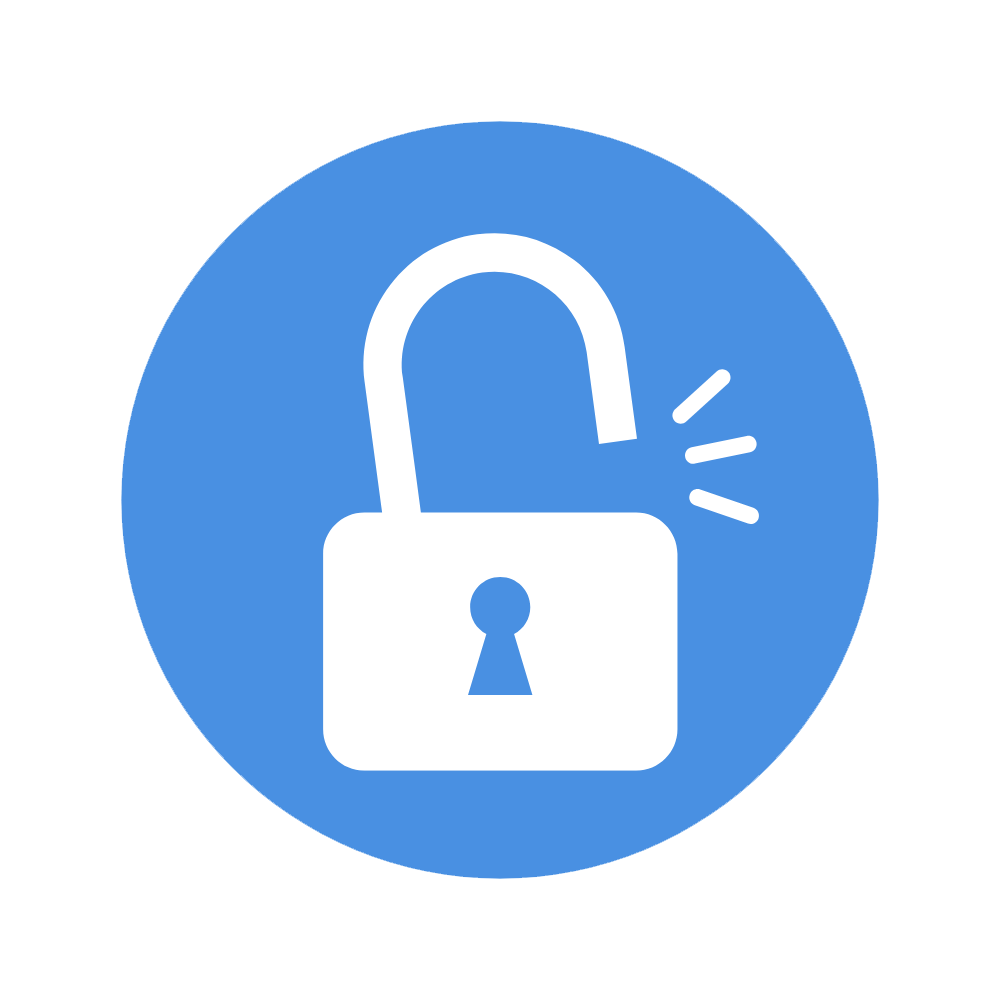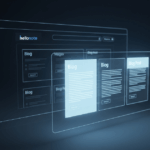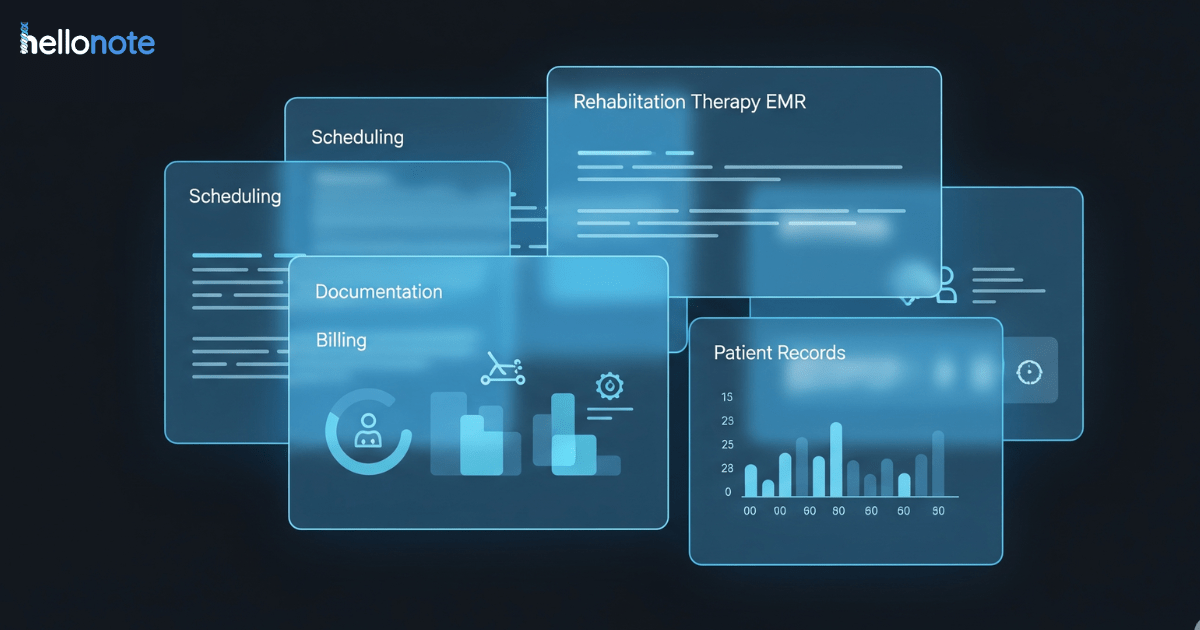
Introduction
Rehabilitation therapy—encompassing Occupational Therapy (OT), Physical Therapy (PT), and Speech-Language Pathology (SLP)—is a field defined by personalized care, complex documentation, and intricate billing requirements. While generic Electronic Medical Record (EMR) and Practice Management Software (PMS) solutions offer basic functionality, they often fail to address the unique needs of rehab therapists. This highlights the crucial need for specialized Rehabilitation Therapy EMR.
Specialized EMR/PMS software, designed specifically for rehabilitation practices, streamlines workflows, reduces administrative burden, and enhances patient care. In this article, we’ll explore the limitations of generic systems, the key benefits of therapy-specific software, and how to choose the right Therapy Practice Management Software for your clinic.
The Shortcomings of Generic EMR Systems for Rehab Therapy
Many clinics start with generic EMRs, only to encounter inefficiencies that hinder productivity and revenue. This is a common problem addressed by specialized Rehabilitation Therapy EMR systems. Here’s where these systems fall short:
1. Scheduling That Doesn’t Adapt to Therapy Needs
Rehab therapy scheduling is more than just booking appointments—it requires matching the right therapist (with the right skillset), room, and equipment. Group therapy sessions, recurring visits, and waitlist management add further complexity. Generic schedulers often lack the flexibility to handle these layers, leading to double bookings, underutilized resources, and frustrated staff, underlining the need for dedicated scheduling in Rehab Clinic Software.
2. Billing Errors and Claim Denials
Therapy billing involves timed codes, modifiers (like KX for Medicare thresholds), and strict authorization tracking. Generic billing modules frequently miss these nuances, resulting in rejected claims, delayed payments, and hours spent on rework, highlighting the importance of specialized Therapy Billing Software. Without built-in checks for therapy caps or payer-specific rules, clinics lose revenue unnecessarily.
3. Documentation That Slows Therapists Down
OTs, PTs, and SLPs each require discipline-specific templates, goal tracking, and outcome measures. Generic EMRs force therapists into inefficient workarounds—manually copying notes, struggling with rigid templates, or even resorting to paper documentation. This not only wastes time but also risks compliance issues if notes don’t adequately justify medical necessity, without proper documentation features in a Rehabilitation Therapy EMR.
4. Poor Plan of Care (POC) Management
A rehab POC is a living document that evolves with patient progress. Generic systems treat it as a static form, making it difficult to track authorized visits, update goals, or flag when progress reports are due. Clinics end up relying on spreadsheets or sticky notes, increasing the risk of missed deadlines and compliance gaps, a critical failing in Plan of Care (POC) management for therapy practices.
5. Lack of Interdisciplinary Coordination
5. Lack of Interdisciplinary Coordination
When multiple therapists (OT, PT, SLP) work with the same patient, seamless communication is essential. Generic EMRs often silo information, forcing clinicians to dig through unrelated notes or rely on external communication tools. This fragmentation slows decision-making and can impact patient outcomes.
How Specialized Rehab Software Solves These Challenges
A purpose-built EMR/PMS system transforms these pain points into streamlined workflows, proving the value of a comprehensive Therapy Practice Management Software. Here’s how:
1. Intelligent Scheduling for Therapy Workflows
-
-
Rule-based matching of therapists, rooms, and equipment.
-
Automated waitlists to fill cancellations quickly.
-
Group therapy support with attendance tracking.
-
Recurring appointment management for long-term treatment plans.
-
2. Billing That Minimizes Denials
-
-
Built-in CPT & modifier checks to prevent coding errors.
-
Real-time eligibility verification before visits.
-
Therapy cap alerts to avoid claim rejections.
-
Automated ERA posting for faster reimbursement. Key features of effective Therapy Billing Software.
-
3. Documentation Designed for Therapists
-
-
Customizable templates for evaluations, progress notes, and discharges.
-
Integrated outcome measures (e.g., QuickDASH, Berg Balance Scale).
-
Smart goal tracking with auto-carry forward features.
-
Flowsheets for tracking exercises and interventions. These are essential aspects of documentation in an OT EMR, PT EMR, or SLP EMR.
-
4. Dynamic Plan of Care Tracking
-
-
Automated visit counters against authorized limits.
-
Alerts for progress reports and recertifications.
-
Goal-linked documentation to show medical necessity.
-
5. Better Reporting & Financial Insights
-
-
Therapist productivity dashboards (units per visit, cancellations).
-
Denial rate analysis by payer.
-
MIPS & quality measure tracking.
-
Revenue cycle analytics (clean claim rates, collections).
-
Choosing the Right Software: Key Considerations
Not all rehab EMRs are created equal. When evaluating options for your Rehabilitation Therapy EMR, consider:
-
-
Does it fit your clinic’s workflow?
-
Can it handle your mix of OT, PT, and SLP documentation?
-
Does scheduling align with your therapists’ needs?
-
How well does it integrate billing and documentation?
-
Avoid systems that require double data entry.
-
Ensure seamless claim submission and ERA processing.
-
Is it scalable?
-
Can it grow with your practice (multiple locations, new therapists)?
-
What’s the user experience like?
-
Involve therapists in demos—if they find it cumbersome, adoption will suffer.
-
Does the vendor understand rehab therapy?
-
Support teams should know the difference between a PT eval and an SLP progress note, which is vital for choosing the right Rehab Clinic Software.
-
The Bottom Line: Why Specialization Matters
A rehab-specific EMR/PMS isn’t just an administrative tool—it’s a strategic investment that is crucial for improve rehab clinic efficiency with EMR:
-
-
Saves therapists hours per week on documentation.
-
Reduces claim denials and speeds up payments.
-
Improves compliance with Medicare, MIPS, and HIPAA.
-
Enhances patient care through better tracking and coordination.
-
Ready to See the Difference?
If your clinic is struggling with inefficiencies, it may be time to explore a therapy-optimized solution. Schedule a demo today to see how the right Rehabilitation Therapy EMR can transform your practice, bringing the many benefits of specialized EMR for rehab to light.

